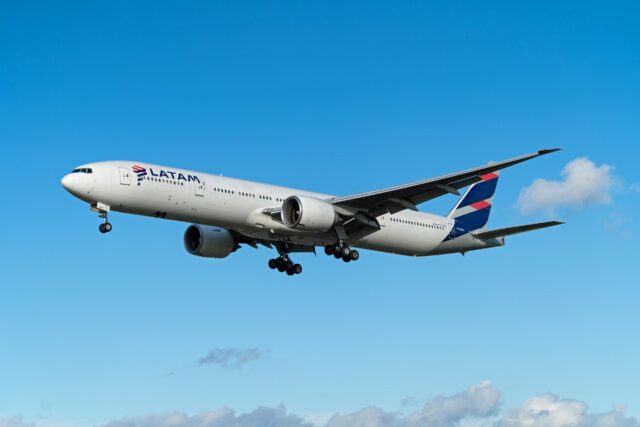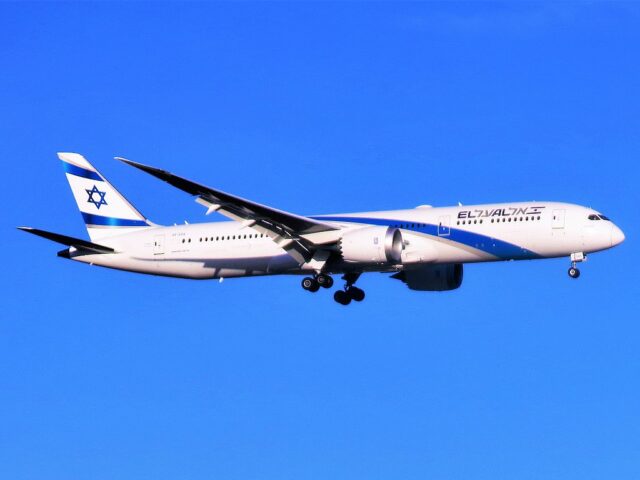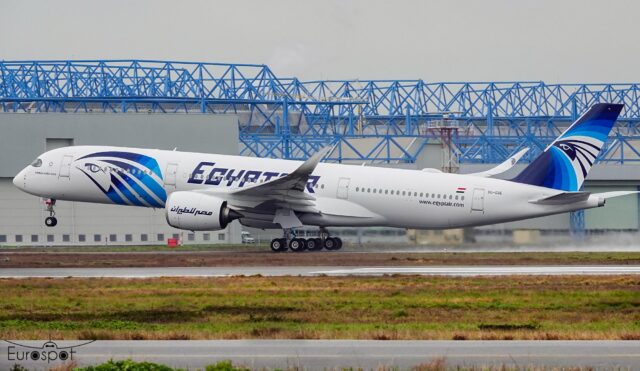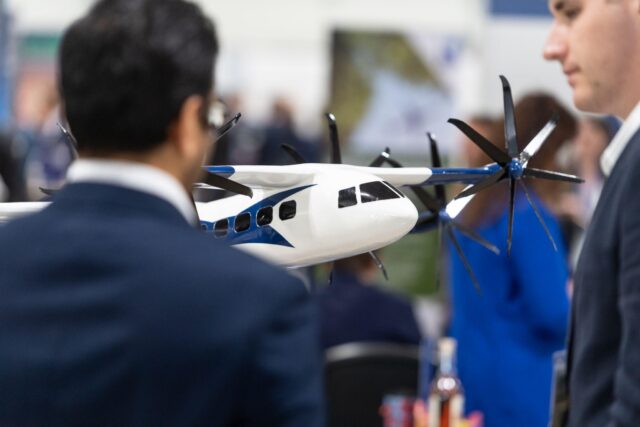In today’s update, government support for the airline industry comes with strings attached, aerospace engineers helps create a prototype mass production ventilator ready for next week following the NHS’ call for the urgent creation of live saving devices, Compass Airlines collapses, BA pilots take unpaid leave and Air Canada lays off 5,000 employees.
Airlines count the cost of government support
Countries from Norway to New Zealand are setting out strict conditions for government support to prop up their beleaguered airlines.
Cancellations and border restrictions have lead to a near shutdown of the global passenger network with no timeframe for when measures can be lifted. The International Air Transport Association (IATA) has forecast the industry will need up to $200 billion of state support to maintain connectivity provided by airlines.
Aviation’s call for support will add to growing pressure on governments which are facing calls from many other industry sectors. The situation is ramped up by a rapid worsening of public finances as economies slump.
Conditions imposed on airlines include loans which may convert to government equity stakes. In the US, airlines will be unable to increase executive pay or golden handshakes for a period of two years.
Air New Zealand was offered a NZ$900 million (£444.61 million) bailout earlier today by Finance Minister Grant Robertson. The government aid was to help the airline survive following the suspension of all non-resident arrivals to the country. Loan conditions include suspension of the company dividend and paying an interest rate estimated at between 7 and 9 per cent.
The US Treasury Department could receive warrants, stock options, or stock from a $58 billion US proposal to prop up passenger and cargo carriers,
Reuters reports US Senate Appropriations Committee Chairman Richard Shelby: “We are not bailing out the airlines or other industries – period,” he said, “Instead, we are allowing the Treasury Secretary to make or guarantee collateralised loans to industries whose operations the coronavirus outbreak has jeopardised.”
Norway is to back its airlines with credit guarantees worth up to 6 billion Norwegian crowns ($537 million), half of which will go to Norwegian Air Shuttle ASA. Conditions for the guarantees include raising money from commercial banks and the equity market.
Finland owns a 56 per cent stake in Finnair and has said it will guarantee a 600 million euro ($645 million) loan for the state carrier. Finnair is implementing a funding plan which included drawing on available credit lines and sale and leasebacks of planes.
Despite the rescue measures, airlines around the world are already placing thousands of workers on unpaid leave as passenger numbers rapidly decrease.
Emergency ventilator prototype created by industry engineers to be approved next week
The NHS’ call to industry to produce emergency ventilators has progressed rapidly with a prototype set to be approved for use in hospitals by the end of next week.
Engineers have been working to solve the issue under three consortia with the aerospace sector consortia headed up by Meggitt. Two other consortia were headed up by Nissan and McLaren. Airbus has offered additional help with 3D technology and facilities should the other companies require it.
Britain has an acute shortage of ventilators which play a vital role in saving the lives of people who develop complications and become critically ill after contracting the virus. The country’s stock of ventilators is estimated to be just 5-8,000 machines for a population of 67 million.
Health Secretary Matt Hancock said he hoped the new ventilators would be approved for use in hospitals by the end of next week with industry sources adding they may be ready for manufacture in a month.
Air Canada to lay off over 5,100 employees
Air Canada will temporarily lay off more than 5,100 employees according to the union representing the Canadian airline’s flight attendants.
The Canadian Union of Public Employees (CUPE) said it was “deeply saddened” to learn of the temporary lay off of about 3,600 of its members at Air Canada and all 1,549 of its members at Air Canada Rouge. CUPE said the layoffs were effective until April 30 at the earliest.
Air Canada announced the suspension of the majority of its international and US trans-border flights by March 31. It added employees would be returned to active duty when the company ramped up the network schedule as conditions allowed.
British Airways pilots take unpaid leave
A joint statement by the British Airline Pilots’ Association has stated that British Airways pilots will have to take two weeks of unpaid leave in each of April and May. Pilots will also have a cut to their basic pay spread over three months in addition to the unpaid leave.
London Heathrow to ‘shrink’ operations during outbreak
London Heathrow has said it will “shrink” its operations while the coronavirus situation persists.
The airport is to remain open to enabling vital freight services to continue as well as the limited number of passenger services.
London Heathrow warns that its financial performance will be “significantly impacted”, following a massive reduction of services by carriers including its primary user British Airways.
Passenger numbers decreased by nearly 5 per cent in February, before the scale of coronavirus-related cancellations soared. The airport company said it was taking a number of immediate actions to safeguard the financial resilience of the business including a review of capital projects, reductions to operating costs, reducing executive salaries and freezing recruitment.
The company is waiving aircraft parking fees, which will enable airlines to ground fleets without financial penalty.
Compass Airlines collapses
Compass Airlines, a regional carrier that feeds American Airlines’ mainline network, will cease operations in early April.
The collapse of the airline follows capacity cuts by American that include a significant drop in flying from Los Angeles International Airport (LAX) as a result of coronavirus crisis.
American Airlines has implemented major capacity reductions to meet reduced demand caused by the pandemic. Initial cuts which were announced last week, included a 14 per cent decrease in contracted flying by Compass.
Increased cutbacks this week has lead to the elimination of remaining flights for Minneapolis-based Compass.
.
Luxair to suspend operations
Luxair is to temporarily suspend flights from midnight on 23 March.
The airline has followed a string of European operators which have decided to suspend flights over the rest of March and into April amid the tightening of national border controls in the fight against coronavirus pandemic.
5 million medical masks arrive in Belgium
An ASL Airlines Belgium Boeing 747-400 freighter has arrrived in Liège Airport, Belgium from Shanghai, Pudong, China carrying 5 million medical masks. Another shipment is expected to arrive to help combat the spread of COVID-19 virus.
Positive test closes ATC tower at Las Vegas International Airport
The Air Traffic Control tower at Las Vegas International Airport has been cancelled along with 500 flights are cancelled after a worker positive for coronavirus.
The worker is now in self-isolation. Air traffic control at Las Vegas International has been handed over to a nearby facility.
Bulgaria closes borders to non-EU Countries
Bulgaria has banned citizens of non-EU countries entering into the country by aircraft, sea, rail and road until April 17. The Interior Ministry also added that the ban on entry to Bulgaria also applied to people arriving from some EU Member States and Schengen countries also remained in place. These include: Italy, Spain, France, Great Britain and Northern Ireland, Germany, Netherlands and Switzerland, with the exception of Bulgarian citizens, family members of Bulgarian citizens and persons with permanent and long-term residence status on the territory of the Republic of Bulgaria.
Citizens from these EU Member States and Schengen countries and their family members are allowed to transit through the territory of Bulgaria in order to return to their country of residence or residence.
The ban does not affect nationals of the other EU Member States and Schengen countries.
















